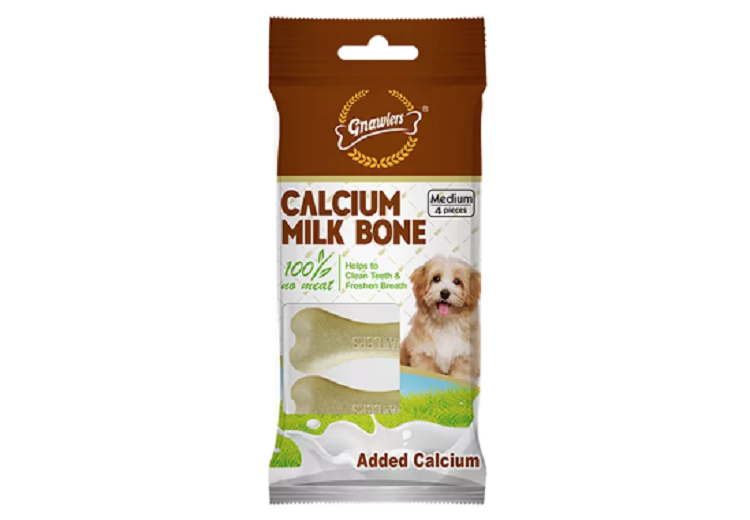Views: 99 Author: Site Editor Publish Time: 2023-06-21 Origin: Site









Domestication of dogs is a practice that has existed in numerous ancient civilizations. For tens of thousands of years, man’s best friends have coexisted peacefully.
The effects of domestication on dogs have long been studied. One apparent effect resulting from domestication is a lack of certain key nutrients for dogs.
In the wild, dogs have a drastically different diet than when living with humans. One of the key nutrient compositions noted to lack in domestic dogs is calcium.
Just like in humans, calcium is vital to your dog's growth and optimal body function. Your dog needs calcium for strong bone development and general health and to prevent a myriad of illnesses and dog complications.
What is the impact of calcium deficiency, and what symptoms point to a lack of the mineral in your feline friend? More importantly, what are the benefits of calcium milk bones for dogs? Read on for a comprehensive brief on the impact of adequate calcium on your dogs.
According to data released by the Association of American Feed Control, calcium is one of the vital minerals your dog needs. In a typical dig meal diet, the dog needs about 0.6% of calcium content. Additionally, it’s important to note that calcium in your dog's diet should be balanced with phosphorus. Common sources of calcium in your dog’s diet include bones, meat, milk bones, legumes, and other dairy products.
Calcium is classified as an electrolyte mineral. This means it aids in the regulation of fluid concentration in the canine's cells. Consequently, this controls energetic impulses within the dog's body. Additionally, just like in humans, calcium is used by cells to send and receive neurotransmitters, muscle contractions, and signal transmission.
Dogs also use the mineral in blood coagulation. Most of the calcium content absorbed in your dog's diet is used in the formation and development of the teeth and bones. Lack of proper calcium intake can lead to an array of both short and long-term health and developmental complications for the dog.
Signs that your dog is calcium-deprived can differ depending on several factors, including the severity of this depravity, the dog's breed, and other underlying health complications. Nonetheless, some of the common symptoms of lack of calcium include the following;
· Fragile bones and teeth
· Lethargy
· Stiff gait
· Restlessness
· Convulsions
· Muscle twitching
· Increased water intake and excess urination
Rickets is the most common disorder associated with a lack of calcium in dogs. The skeletal disease is followed by a quick loss of strength and a change in the dog's bone consistency. If this condition is not treated in good time, it may lead to long-term deformities of the bones.
If you suspect your dog could be suffering from a lack of adequate calcium, you should consult your vet as soon as possible. The vet will physically examine your canine and advice on the best course of treatment. Adding Milk-bone to your dog’s regular diet is the most common advice by vets. Milk-Bone contains a rich supply of calcium that could help your dog's health and fulfill its calcium nutritional requirements.
Milk-bone is arguably one of the most popular fig treats available for your canine friend. The dog biscuit brand was first introduced in the early 1900s. For more than a hundred years, Milk-bone has remained a favorite treat for dogs around the globe.
Some of the benefits of giving your dog calcium Milk-bone include;
There's a clear reason why most vets recommend Milk-bone; it has all the nutritional requirements your dog needs to lead a healthy and happy life. This dog treat contains carefully calibrated minerals and nutrients, including calcium.
If your dog has a calcium deficiency, it may have weak bones, including teeth. This could make gnawing and chewing on bones and meat particularly difficult. Luckily, Milk-bone biscuits are easy to chew and will be absorbed in the body within minutes of consumption.
Milk bone is a treat that can be incorporated into your dog's diet with ease. This nutritional product is not a replacement for your dog's diet. Instead, you should give the hog this treat alongside its normal diet. The dog will be able to pull nutrients and beneficial minerals from the biscuits as well as other foods in its diet.
Milk-bone is a great way to get your dog back on track when it comes to calcium consumption. Don’t let your dog suffer from the aforementioned effects of calcium deficiency. Add this treat to your dog’s diet and watch their health improve with each passing moment.